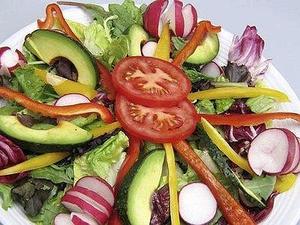Food safetyGermany struggles to find source of deadly E.Coli outbreak
German health officials struggling to find the source of deadly E.Coli outbreak suffered another setback when Spanish cucumbers were found to have been incorrectly declared the source of the infections; so far seventeen people have died and more than 1,500 Europeans have been sickened by a rare strain of enterohemorrhagic E. Coli (EHEC); eighty new cases were reported in Hamburg between Monday and Tuesday alone and hospitals are treating 110 patients critically ill with hemolytic uremic syndrome (HUS); the current outbreak has disproportionately affected women, and health officials are struggling to understand why; health officials have urged to not purchase any vegetables declared as potentially dangerous

A leading suspect in Germany's E. coli investigation // Source: adnkronos.com
German health officials struggling to find the source of deadly E.Coli outbreak suffered another setback on Tuesday when Spanish cucumbers were found to have been incorrectly declared the source of the infections.
So far seventeen people have died and more than 1,500 Europeans have been sickened by a rare strain of enterohemorrhagic E. Coli (EHEC).
Epidemiologists had originally believed that Spanish cucumbers were the cause of the outbreak of after several people reported eating raw vegetables before they became ill. German officials randomly tested four cucumbers from Hamburg markets and found the presence of E. Coli, but on Tuesday, Cornelia Prüfer-Storcks, Hamburg’s health minister, declared that the bacteria from the cucumbers did not match the strain that has been infecting people across Europe.
“The disturbing point here is that we still have not found the source,” said Stefan Willich, the head of the Institute for Social Medicine and Epidemiology at Hamburg University’s Medical Center. “That is usually the first task and the most important task, because if you have the source you can prevent effectively.”
According to Prüfer-Storcks, eighty new cases were reported in Hamburg between Monday and Tuesday alone and hospitals are treating 110 patients critically ill with hemolytic uremic syndrome (HUS).
HUS occurs after gastrointestinal infections of E.Coli and produces toxic substances that destroy red blood cells and damage the kidneys. The illness can be quite deadly and without proper treatment, less than 50 percent of those infected recover.
Willich said that this strain of bacteria has proven to be particularly deadly.
“The case fatality is surprisingly high. Hospitals are loaded with hundreds and hundreds of patients, and that’s frightening,” he said.
The current outbreak has disproportionately affected women, and health officials are struggling to understand why.
The European Centre for Disease Prevention and Control has reported a total of 373 HUS patients, two thirds of them women.
“We don’t know why women, particularly younger women, seem to be most vulnerable,” Willich said. “Maybe that has something to do with exposure. Maybe those women just tend to eat more salad than others.”
Fruit and vegetable sales have plummeted and in attempt to sell their goods, local fruit and vegetable vendors in Hamburg insist that their food is safe because it comes from their own farms or from other places nearby.
Prüfer-Storcks has cautioned people from eating any vegetables that have been flagged as potentially dangerous, even if it is grown locally.
“The protection of human life must be more important than economic interests,” Prüfer-Storcks.
Since the outbreak, fruit and vegetable vendors have struggled to sell their goods.
“This is a catastrophe,” said one seller at Hamburg’s biggest outdoor market. The large market features only organic produce and is usually teeming with shoppers, but recently only a small handful of customers have visited.
Vendors have made no effort to sell produce from Spain since officials declared that Spanish cucumbers were a potential cause of the outbreak.
German health officials are racing to stem the spread of the deadly outbreak, in what could be one of the country’s worst food-borne events.
Rico Schmidt, a Hamburg Health Ministry official, said that this outbreak has been the worst event of his career.
“We had a lot more people with influenza two years ago,” he said, “but that was nothing compared to this. We have a lot of people dying.”
